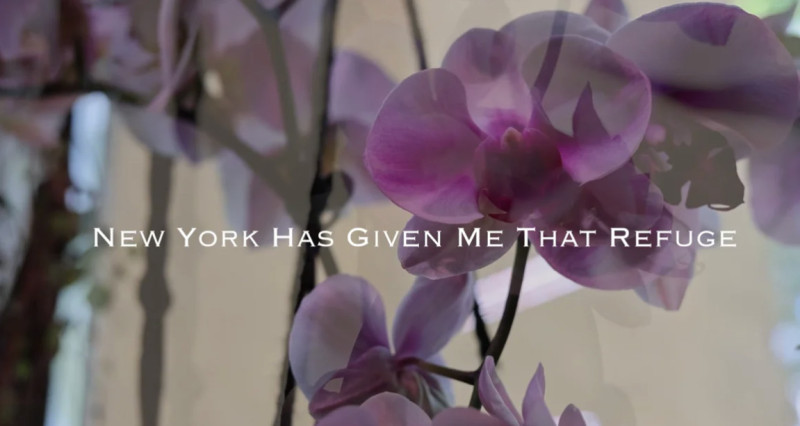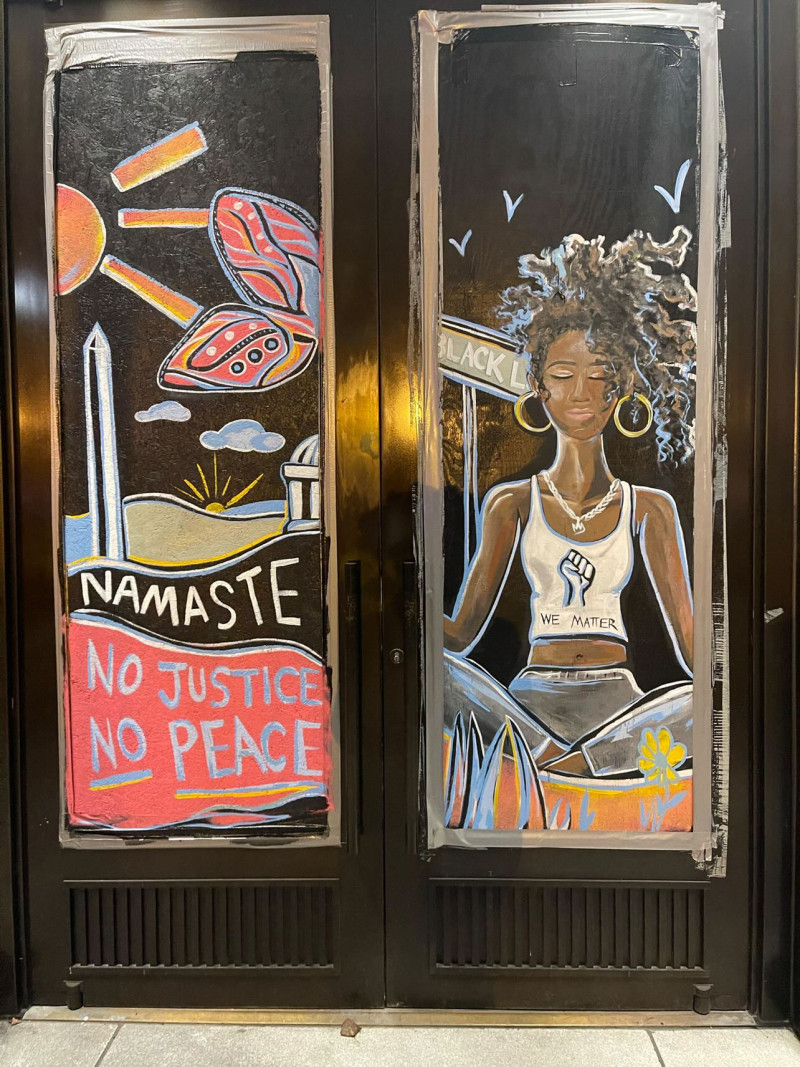
New York has given me that Refuge
In this film, refugee South Asian LGBTQ+ activist Barbara Khan talks about her migration from Pakistan and her life in New York as a trans woman.

Did you feel excluded or discriminated because of your status as a refugee or asylum seeker? Whether it was applying for jobs or among people and socializing?
Yes, with jobs. A lot of places don’t want to invest because here in the US at least, you get your work authorization renewed every two years. And I know two years sound ok, but for at least to invest in someone, not even sponsorship but like to invest in someone, to take a leadership position, it‘ not going to happen. […] For example… I have a year left or eight months left, right? What the employer sees is that you have eight months left, even though I can say that it’s renewable, I will apply and I will get it, hopefully, but what they see is not. They also understand the messiness of the immigration system. […] Some places are fine, not everyone is saying „No“. I had conversations almost every place I applied to about that, so it’s something that will come up…It’s a conversation that will happen. Some places don’t want to take the risk.
Did you experience any discrimination socially?
Socially? I will say more…I would say if you wanna build the family it’s gonna be hard. Because it’s really not known what’s going to happen. And there is with people sometimes, not building friendships, because that could be very different. It’s very different, but like in settings, some people just see you as a case and feel bad for you. Not in a constructive way, I feel like you become a project. I don’t know how to explain that exactly to be honest… You’re not seen as you like without the case, you’re not seen as you without the refugee status, without the asylum status if you share that with people. Which actually is very weird because some people ask you out of nowhere: What’s your status here?- which is a very stupid question for me, that is very random. It’s very, very bad, dumb, it doesn’t make sense. I don’t know if it’s a D.C. thing. […]
I got very used to it. When someone asks me If I am what I was saying earlier, I got way better at recognizing curiosity or hostility when it comes to that or racism. It’s the same with these questions, and if I’m sensing that the person is malicious or like just being annoying, I don’t answer and I’m not rude, but I’m like: Why would I tell you? Why are you asking? Why is it important for you? But if it’s a person we’re becoming friends or whatever it is, the setting that I don’t feel hostility, I’m fine and sharing that I’m an asylum seeker.
Do you feel like a person in exile? Does this define you? What does being a refugee or asylum seeker mean to you?
I think I am definitely in a personal exile. I feel that a lot. It might not be for everyone, but for me it helps to acknowledge that, because a lot of the feelings that I don’t understand and the struggles I don’t understand. I guess it comes up in a very surprising ways, like being an asylum seeker has effects on you or a refugee in ways that I never thought about. It’s just thinking about life. You do not think about life as everyone around you. You do not think about family, choices, dating, even employment in the same way. Specifically, if you moved here on your own. I have conversations with some of my friends who moved as partners or build a family or something… I think there is a way they connect to each other, but if you would go on your own it’s just very isolating, so you have to think about life. I feel like I’m processing life differently, very differently.
Who was and who is your community?
Other Latinos for first period in the US. This is the community that really supported me. And my experience now with support is very different, maybe because of the way I grew, the way I’m seeing relationship and supports and also the different things that come with groups and drama and all of these things. But one of the very big things that I am personally extremely surprised, is that I felt connection with the African American community in the US in a way I’ve never felt even in Egypt with Egyptian because of colonialism. My life in Egypt was full of discrimination based on gender, based on a lot of things, based on a being a woman covering human rights abuses in Egypt, based on also being too African, looking too African.
What role does your mother tongue play in your life?
It comes with beautiful poetry and beautiful music, so this is something that is very helpful for me. It’s a beautiful language, a deep language. […] I feel it or maybe just I’m homesick to the speaking or hearing Arabic all the time. So it’s a very beautiful language, music, songs. If I’m thinking about something hard and painful I don’t think in Arabic I think in English. If I’m thinking about something beautiful or romantic or dreamy, that’s Arabic for.
L. (they wish to remain anonymous) is a 30-year-old queer activist, human rights journalist, and refugee from Egypt who has been living in Washington, D.C. since 2017. Because of their participation in the revolution and their work as a human rights journalist covering human rights abuses and social issues in Egypt, they have been targeted by the government for several years in a row, and things kept escalating. L. left Egypt in 2017 to begin their Master´s degree in the United States.
Interview conducted by the We Refugees Archive team with L. in the fall of 2022. The interview has been edited for length and clarity. The interviewee wishes to remain anonymous.